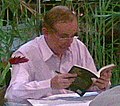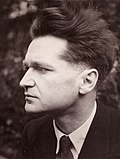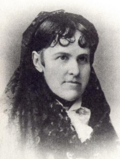List
| Image | Name | Date of birth | Date of death | Nationality |
|---|---|---|---|---|
 | Julius Bahnsen [1] [2] | 30 March 1830 | 7 December 1881 | German |
 | Ernest Becker [3] [4] : 158–159 | 27 September 1924 | 6 March 1974 | American |
| N/a | David Benatar [5] [6] [7] | 8 December 1966 | — | South African |
 | Ray Brassier [8] [9] [10] | 22 December 1965 | — | British |
 | The Buddha [4] : 130 [11] [12] | c. 563 BC | c. 483 BC | Indian |
 | Julio Cabrera [13] [14] [15] | 1944 | — | Argentinian |
 | Albert Camus [16] [17] [18] [19] | 7 November 1913 | 4 January 1960 | French |
 | Albert Caraco [20] | 8 July 1919 | 7 September 1971 | French-Uruguayan |
 | Emil Cioran [17] [21] : 396 | 8 April 1911 | 20 June 1995 | Romanian |
| N/a | David E. Cooper [22] | 1 October 1942 | — | British |
| N/a | Hegesias [21] [23] | c. 290 BC | c. 290 BC | Greek |
 | Drew Dalton [24] | ? | — | American |
 | Baltasar Gracián [21] | 8 January 1601 | 6 December 1658 | Spanish |
 | John Gray [9] [19] [25] | 17 April 1948 | — | English |
 | Eduard von Hartmann [1] [2] [6] [7] | 23 February 1842 | 5 June 1906 | German |
| N/a | Ulrich Horstmann [26] | 31 May 1949 | — | German |
 | Omar Khayyam [27] | 18 May 1048 | 4 December 1131 | Persian |
 | Giacomo Leopardi [1] [17] [21] : 396 | 29 June 1798 | 14 June 1837 | Italian |
| N/a | Thomas Ligotti [4] [9] [19] [21] : 405 | 9 July 1953 | — | American |
 | al-Ma'arri [27] | December 973 | May 1057 | Arab |
 | Philipp Mainländer [1] [2] | 5 October 1841 | 1 April 1876 | German |
 | Carlo Michelstaedter [28] | 3 June 1887 | 17 October 1910 | Italian |
 | Friedrich Nietzsche [7] [17] [21] : 396 | 15 October 1844 | 25 August 1900 | German |
 | Olga Plümacher [1] [2] | 27 May 1839 | c. 15 June 1895 | German |
 | Blaise Pascal [17] [21] : 396 [29] | 19 June 1623 | 19 August 1662 | French |
 | Arthur Schopenhauer [6] [7] [30] [31] | 22 February 1788 | 21 September 1860 | German |
| N/a | Agnes Taubert [1] [2] | 7 January 1844 | 8 May 1877 | German |
| N/a | Eugene Thacker [9] [10] [29] | ? | — | American |
| N/a | Herman Tønnessen [32] | 24 July 1918 | 2001 | Norwegian-Canadian |
 | Miguel de Unamuno [17] [29] [33] | 29 September 1864 | 31 December 1936 | Spanish |
 | Peter Wessel Zapffe [6] [34] [35] | 18 December 1899 | 12 October 1990 | Norwegian |